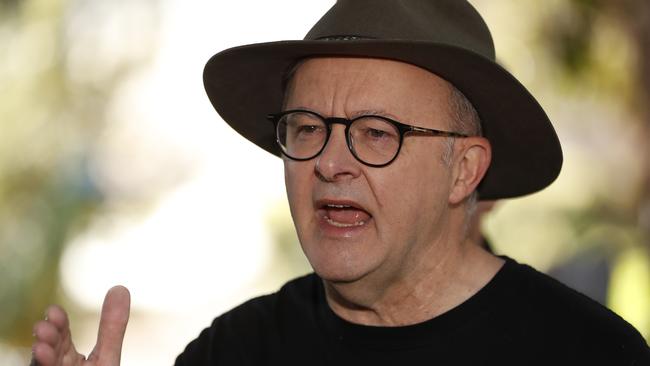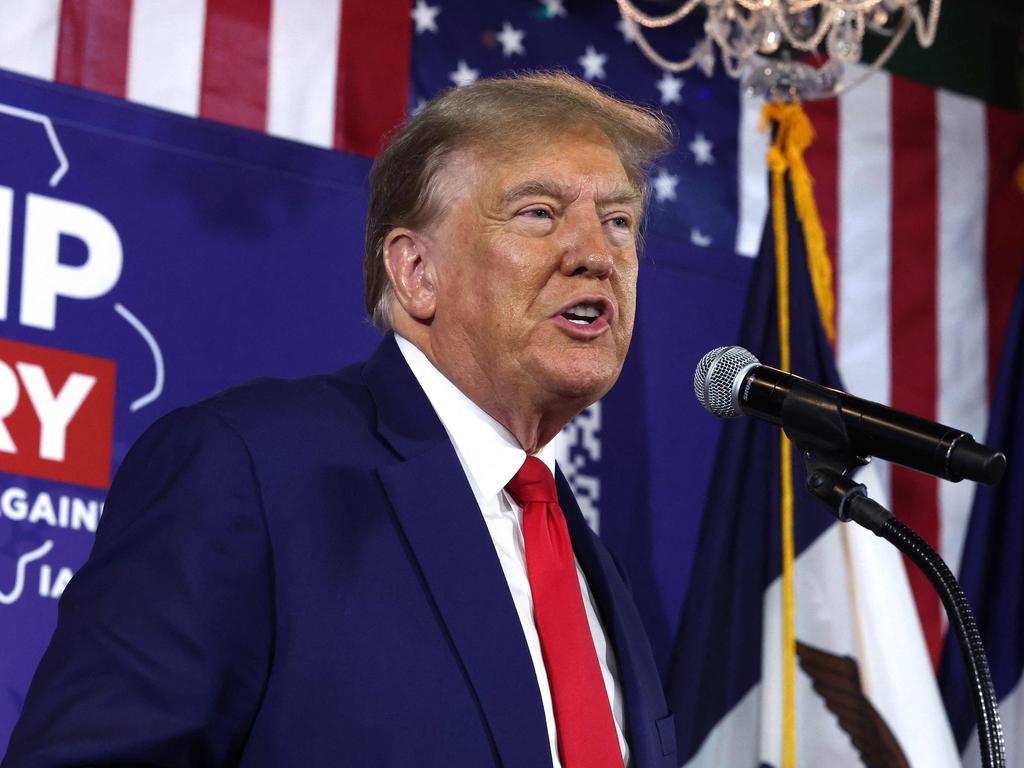Woke is broke, voters say, as conservatives take on activists
Labor, teals and Greens are in the sights of a 300,000 strong army of volunteers prepared to campaign against a woke Australia.

Conservative campaign lobby Advance Australia will seek to mobilise 300,000 supporters ahead of the next federal election to target Anthony Albanese, the teal independents and the Greens in a range of seats, on the back of the success of its campaign against the voice referendum.
The move to establish an aggressive election campaign footing follows a poll jointly commissioned by the group and the Institute of Public Affairs that shows people strongly reject corporate Australia’s political activism in the wake of the voice referendum defeat.
A comprehensive post-referendum poll examining voters’ reasons for voting No showed that almost two thirds of voters rejected the political activism of big business, and that Coalition voters were more likely to feel alienated from political parties.
The poll also showed that 37 per cent of Labor supporters at the last election voted No in the referendum, with the only income group to have backed the voice being households on incomes of more than $200,000 a year.
The poll also found that 15 per cent of Labor voters said they were now less likely to vote Labor because of the government’s handling of the referendum. This number was highest in Western Australia at 26 per cent.
Of the key findings in the poll conducted from October 12 to 19 surveying 3526 voters nationally, one of the most significant was the belief that the involvement of big business in political issues was out of touch with the values of mainstream Australia.
Corporate heavyweights, including Qantas and the big four banks, contributed shareholder funds to backing a Yes vote in the referendum and actively supported the Yes case for change.
Reflecting a rejection of increasing corporate activism across a range of political issues, 64 per cent of voters agreed that big businesses’ engagement in political issues did not represent their values.
This was a view shared by a majority of Coalition, Labor and Greens voters.
But Liberal and Nationals voters were more hostile to big business than Labor voters and more likely to feel alienated from the values of political parties, corporate Australia, the mainstream media and sporting codes.
Advance Australia’s campaign would seek to reactivate its referendum campaign infrastructure to run a broader election campaign but would run independently of the Coalition.
Advance Australia executive director Matthew Sheahan said the election was shaping up as an “us vs them” battle with farmers and families on one side and elites and activists on the other.
“While the Labor Green teal side obviously starts as the favourite, the Australian people just might flip the script again,” Mr Sheahan said.
“The continued failure of the Labor Green teal experiment to deliver on housing, on immigration, on cost of living, on national security and instead indulge in left wing activism has set the stage for the campaign – who do the Labor Green and Teal MPs actually represent?
“It’s not mainstream Australia. Advance will be making sure that it’s the farmers and families’ voices that are front and centre in the election.”
Other key findings from the poll, conducted by research company Insightfully, showed that every male age group voted No in the referendum, while the only female age group to vote Yes were those aged 18-34.
The only education group that voted Yes were those with tertiary qualifications. Those with a vocational education were more likely to vote No (71 per cent) than those with a school qualification (62 per cent).
The most common reason for voting Yes was to improve outcomes for Indigenous Australians; the most common reason for voting No was because the voice divided Australians by race.
The poll also revealed younger voters were significantly split along gender lines in their support or opposition to constitutional change to enshrine an Indigenous voice to parliament.
Liberal and National voters are more likely to be alienated from the values of political parties, the mainstream media, big business and sporting codes than Labor or Greens voters, while Greens voters are the most likely to be satisfied with the political and cultural direction of the country.
Institute of Public Affairs senior fellow John Roskam said Australians were “rejecting the woke agenda of big business”.
“Big business was the biggest backer of the voice, a radical proposal decisively rejected by voters,” Mr Roskam said.
“The voice was a turning point in the relationship between big business and the centre-right in Australia. Big business won’t be forgiven for trying to divide Australians.
“Big business speaks for a small circle of rich elite CEOs who are more interested in virtue-signalling than standing up for the interests of ordinary Australians. Their attack on Australia Day proves how out of touch with mainstream values big business CEOs are.
“The Liberal Party must realign itself away from big business.
“The historical relationship between the Coalition and big business is now toxic to the Coalition. Just as big business dumped its support for the Coalition a decade ago, the Coalition must walk away from big business. It is significant that Coalition voters are the most hostile to big business.”








To join the conversation, please log in. Don't have an account? Register
Join the conversation, you are commenting as Logout